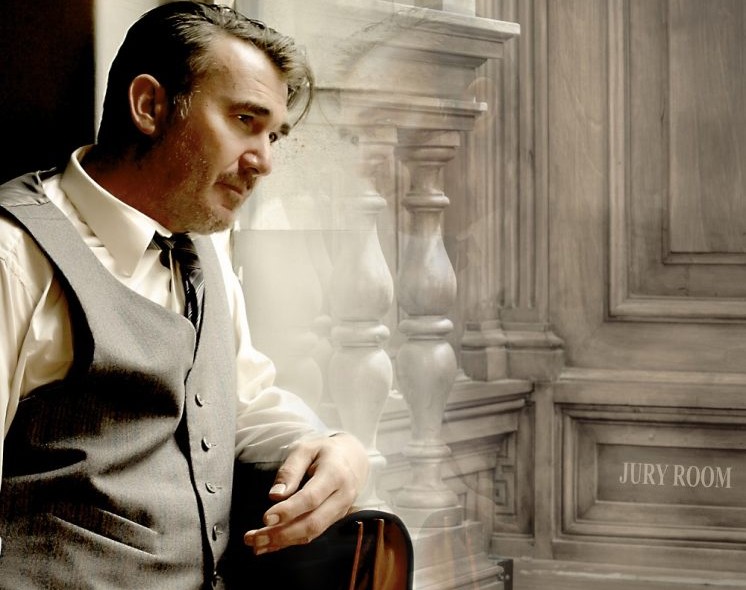
The Verdict is a legal drama based on the book by Barry Reed and adapted from the 1982 film by Sidney Lumet. It follows the dishevelled lawyer Frank Galvin (Ian Kelsey) as he battles to prove the gross malpractice of a Catholic hospital in Boston that is responsible for leaving a young mother in a vegetative state.
This is a very conventionally cinematic narrative. The story hits many familiar and predictable beats. The Verdict is an archetypal example of a legal procedural with a smattering of dysfunctional-but-endearing male protagonist tropes thrown in. Frank’s a bit of a drunk, he’s separated from his wife, he’s got a sad past but ultimately he knows he has to do the right thing rather than coast and shrug off responsibility like he so often does. It’ll be pleasingly familiar to some, tediously overdone to others.
The American accents here reek of a certain approximation that you only tend to find in British theatre. I have a good ear for Boston accents so I am going to be more judicious with a play set there than most other areas of the US, and the authenticity of American accents is a complete non-factor for many, but it speaks to an acute negligence that pervades and undermines the production throughout.
Take, for example, the court scene that constitutes the second half. The pace is more brisk and enlivened than the first half and there is a reasonably satisfying confrontational arc to the drama here, but the lawyers seem more flustered than anything else. This really contradicts the repeated assertions of how fierce the high-powered defence lawyer is (dare I say, the actor seemed to stumble on a few lines) and makes the obstacle the protagonist must overcome considerably less intimidating. Tonally, the scene is weakened by the depositions of a few of the witnesses who ham things up. Yes, American legal proceedings (particularly as presented on stage and screen) have a performative nature to them and you can emphasise this in how the witnesses are coached to address the jury, but these performances err on the glib.
Uninventive blocking, functional but unevocative sound design, the odd slightly campy performance – it is little things like these that convey a rough-around-the-edges or acutely unimaginative take on the material which might otherwise be elevated.
Your mileage may vary on this one. If you are happy with a traditional legal drama that offers few surprises, The Verdict will be a satisfying watch. With little to offer an audience seeking something unconventional, provocative or insightful, I don’t think The Verdict achieves the mass appeal it aspires towards. ★★☆☆☆ Fenton Coulthurst 20th February 2019

